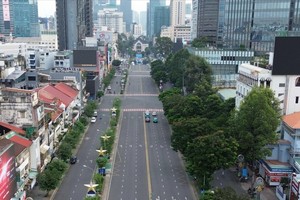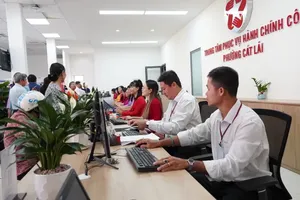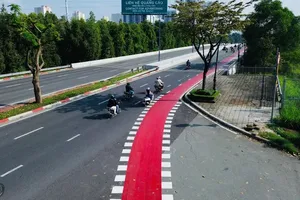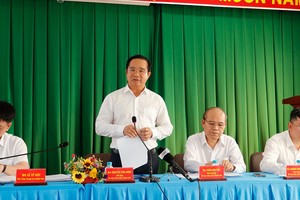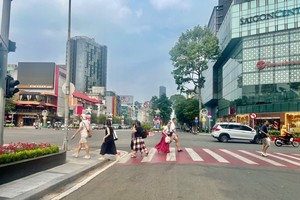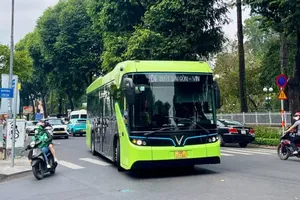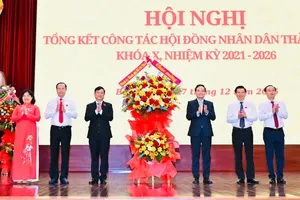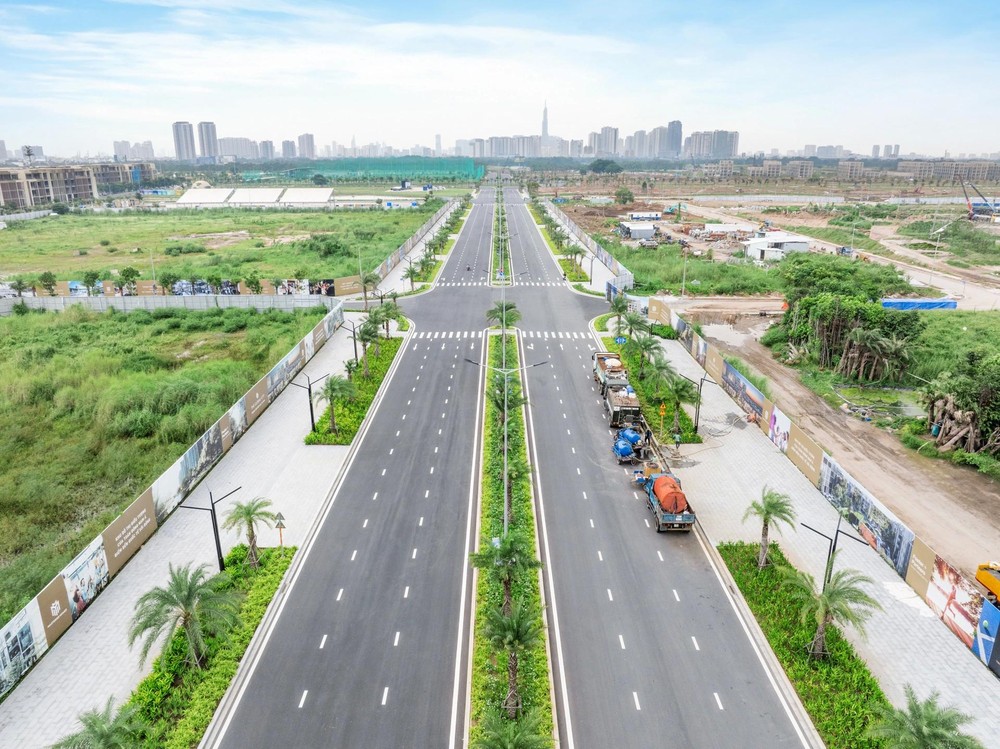
The Ho Chi Minh City People's Committee has assigned the Department of Finance to lead the implementation of Resolution 389/NQ-HDND. This resolution, passed on August 28, adjusts the investment policy for the Thoi An - Thanh Xuan inter-ward road construction project.
This 4.5km road is expected to ease traffic congestion and improve connectivity in the city's northwestern area, transforming the local infrastructure. By acting just days after the resolution was issued, the city shows a strong determination to enhance its urban landscape.
This proactive approach extends beyond major projects. During the recent National Day holiday on September 2, while many were on vacation, local officials in neighborhoods and hamlets across the city were busy distributing gifts to residents. This effort ensured that meaningful gifts reached people in a timely manner, clearly illustrating a dedicated public service.
The essence of "serving the people" is also reflected in national initiatives. Project 06, which focuses on the development of applications utilizing population data, identification, and electronic authentication to facilitate national digital transformation, serves as a prime example. This groundbreaking project is set to alter administrative practices that have persisted for decades, and within a brief period, it has permeated every aspect of daily life.
Millions of residents have adapted to using citizen identification cards embedded with chips for medical examinations, treatment, and conducting administrative tasks online. This achievement is the result of strong guidance from the Government, along with the synchronized and collaborative efforts of various ministries, agencies, and localities.
This transformation arises from a shift in leadership and strategic thinking, as well as the necessity to enhance the capacity for policy response. Rather than merely awaiting detailed directives, organizations have taken the initiative to review and assess in order to implement policies promptly upon their approval.
In order to fulfill these requirements, the team of staff and civil servants must consistently maintain a state of "readiness mode". This includes local police officers who diligently go door to door in a neighborhood which they are responsible for to electronically identify individuals and assist them in completing online procedures, as well as ward and neighborhood cadres who remain on duty during holidays to ensure timely delivery of gifts to the community. The advisory team is perpetually prepared to receive new directives to provide guidance on implementation strategies.
The significant transformation of the apparatus and the cadre team has been generating tangible benefits, aiding in the reduction of the disparity between policies and real life, and enhancing the public's trust in the leadership of the Party and State. This, in turn, creates a robust impetus for the nation's advancement in this new era.
